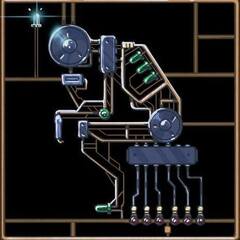WHEA errors in OCCT during CPU upgrade of a XEON/EEC RAM system, no overclock
-
Featured Topics
-
Topics
-
Gat Pelsinger ·
Posted in Programming3 -
3
-
GanjajoggiBig ·
Posted in Servers, NAS, and Home Lab5 -
Quackers101 ·
Posted in Windows1 -
ECZxEMMA ·
Posted in Troubleshooting0 -
Fio ·
Posted in Networking3 -
Nervoussoup101 ·
Posted in New Builds and Planning1 -
2
-
19
-
2
-
-
play_circle_filled

Latest From ShortCircuit:
I tried 20 influencer foods, here are the best… and the worst…


.png.255947720031a641abdac78e663b681c.png)

.thumb.jpg.ab6821c090888206ddcf98bb04736c47.jpg)












Create an account or sign in to comment
You need to be a member in order to leave a comment
Create an account
Sign up for a new account in our community. It's easy!
Register a new accountSign in
Already have an account? Sign in here.
Sign In Now